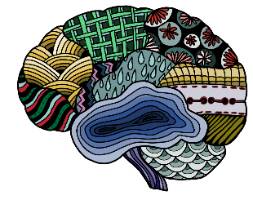Summary
In this collection, you will find resources to support the development of growth mindsets among learners. Growth mindsets serve to improve student motivation by expanding the focus of achievements beyond immediate outcomes, emphasizing the importance of the learning process and personal growth. Someone with a growth mindset is more inclined to embrace challenges and persevere in the face of failures. As such, research suggests that a growth mindset enhances student achievement (and by extension, college preparedness) as well as success beyond high school.Resources

This professional development session focuses on increasing teachers' knowledge about growth mindset and how it can be fostered in their classrooms. During this interactive session, participants will assess their own mindsets, review research on growth mindset, and develop goals for applying the research... Read more »
- Administrators, All Staff or Teachers, New Teachers, PLC, Parents
- Any time of year, Pre-Service Training
- Large Group (at least 30), Medium Group (at least 10)
- Individual Career Academic Plan (ICAP)
- Action Plans, Active Engagement, College-Going Culture, Cross-Curricular, Increase Teacher "Toolbox"
- 1i, 2g, 2l

No more: "I'm not a math person!" "Growth mindset" is more than a buzz phrase—it shapes instructional choices. This session explores what growth mindset is and how it can support reluctant math learners. The math achievement gap—the math anxiety and frustration that comes with that—is very real for... Read more »
- New Teachers, Teachers
- Planning/Collaboration/Conference Time, Pre-Service Training, Summer Session
- Large Group (at least 30), Medium Group (at least 10), Small Group, Small Group (at least 4)
- Increase Teacher "Toolbox"

In this lesson, students will learn about the concepts of growth mindset and neuroplasticity, how to identify their own mindsets, and methods to change them. Students will play through Advance U: The TALENT Machine, a digital game-based learning (DGBL) module, to explore these concepts in an interactive... Read more »
What Lies Beyond Talent?
Mindset and Neuroplasticity
- Games, Individual Career Academic Plan (ICAP)
- 7th - Undergraduate
- English/Language Arts, Science, Social Studies
- Psychology
- 9.3.W.3, 9.3.W.5, 10.3.W.3, 11.3.W.3, 12.3.W.3, PS.3, PS.3.3, HS-ETS1-4, M.5

Advance U: The TALENT Machine
- 9th - 12th
McLaren Academy is testing a new machine that is able to determine a person’s “natural talent," assigning people careers in which they never have to struggle or fail. Students must learn about neuroplasticity and growth mindset to teach those in charge that people can grow beyond the limits of their... Read more »
- 9th - 12th

What came first, the chicken or the egg? Oftentimes, Positive Mental Attitude (PMA) and Growth Mindset seem as if they are one and the same. During this activity, students will explore the importance of developing a Positive Mental Attitude (PMA) in order to establish a Growth Mindset and will finally... Read more »
- Any time of year
- Large Group (at least 30), Medium Group (at least 10), Small Group, Small Group (at least 4), Whole Class
- College Admissions Procedures, Extracurricular Activities
- School Environment, Supporting Student Success

My Favorite Mistake
- 11th - 12th
This formative assessment strategy enables teachers to evaluate student misconceptions while also helping them overcome the fear of failure. By celebrating the strengths within "wrong answers" and working out the correct answer as a group, teachers can strategically target students' understanding and... Read more »
- Whole Class
- Engage/Opening, Evaluate/Assessment
- Less Than 10 Minutes
- Analyze, Collaborate, Evaluate, Problem Solving, Reflection, Review, Self-assessment
- 11th - 12th

This interactive inquiry-based lesson focuses on how our mindset impacts how we engage and approach different situations throughout life. Students will reflect on their own mindset and current beliefs that affect growth and fixed mindset. Students will develop a plan to foster a growth mindset. Read more »
- Students
- 1st Nine Weeks, Any time of year
- Action Plans

This activity focuses on eliminating the emotional fear of mathematics by allowing students to evaluate where they are on the math spectrum and identify their goals moving forward. This is a great activity to do not only in the first days of school but also to revisit multiple times a year. The Extend... Read more »
- Students
- 1st Nine Weeks, 2nd Nine Weeks, 3rd Nine Weeks, 4th Nine-Weeks
- Whole Class
- Action Plans, Activate Prior Knowledge
- Supporting Student Success
Standards
This work is licensed under a Creative Commons CC BY-SA 4.0 License.
Report copyright infringement »

